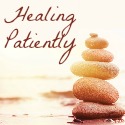I may receive a commission if you purchase something mentioned in this post. See more details here.
Every. Single. Woman.
Even single women (ha, see what I did there?).
Do you know how often your periods come? Are your periods healthy? Do you know if you are ovulating? Do you know if you may have hypothyroidism or PCOS? Do you suffer from infertility? Do you know if you may struggle to get pregnant? Do you know if you may be able to get pregnant, but will likely suffer frequent miscarriages?
What if you could know every one of these things? What if you could diagnose and treat a health concern before it becomes an issue? What if you could feel empowered by recognizing the root cause of symptoms? What if you could feel confident addressing concerns about your health with your doctor?
All of this and more is possible. All you have to do it pay attention and listen to your body.
In upcoming posts, I will be discussing how intimately a woman’s health is connected to her cycle and various ways that a woman can recognize the signs her body is giving her. For now, let’s just talk about getting started.
The Problem with Birth Control
I don’t keep it a secret that I dislike hormonal birth control. It destroyed my health: I am confident that it is part of what triggered my hypothyroidism so early in life. What really bothers me, though, is how it is used as a band-aid and a block. Not only does hormonal birth control not treat a single health problem (In fact, it has not been approved to be used for any of the health concerns you are using it for, besides contraception or acne. And let’s face it, there are healthier ways to deal with both), but it completely severs a woman from her body. While on hormonal birth control, a woman no longer can chart her cycles. Because she has none! She is isolated from her body’s natural rhythm and can no longer listen to what it needs. Sadly, even women who are not on birth control have lost the ability to listen.
If that is too woo-woo for you, then let’s talk about health concerns. Birth control pills are frequently used as a band-aid for any menstrual complaint. This is what happened to me: I went to the doctor to find out what was wrong, and they handed me a prescription rather than actually figuring anything out. I still don’t know what was wrong back then, but I have since learned that as long as I eat well, my periods are manageable. That is, when I get them, since after 18 months my body still has not regained the ability to produce hormones and cycle the way it should, thanks to my hypothyroidism. Yay vicious circles!
However, this is okay because now I know my cycle. I can see my cycles slowly returning. Knowing if and when I ovulate saves lots of money on unnecessary pregnancy tests – when I’ve gone 60 days without a period I know why. Knowing when I ovulate, how long my luteal phase is, and a few other physical symptoms allows me to pinpoint when my period will start despite it being so irregular. Knowing my cycle allows me more freedom than birth control pills ever did, and I am saving money in the process.
Know Your Cycle
Many women think that they have to be on birth control because they have such and such a condition. Unfortunately, if they go off the pill to get pregnant, that condition will still be there and may make it incredibly difficult to get pregnant. If women instead learn to identify and treat the root cause, they can eliminate the problem long before they decide to have children.
For women who do not see children in their future, knowing your cycle is still absolutely critical. You can identify and deal with any of the conditions that apply above without the cost and health risks of hormonal birth control. You can increase the effectiveness of any non-hormonal birth control you are using. You can avoid pregnancy without using any artificial methods. You can be aware of what is happening and in touch with your body throughout menopause. If nothing else, you can keep tabs on your health and always know when your next period will arrive.
Look, I don’t know your health history and however you choose to deal with sex and pregnancy is between you, your partner, and God. However, I strongly believe that the vast majority, if not all, of women on birth control pills would be better off addressing the root of their health problems and using non-hormonal methods of contraception.
When a woman knows her cycle, treats the root cause of any health concerns, and lives in communion with her body, her menstrual cycle is no longer a burden. It can become whatever you want it to be: from a celebration of life and femininity to simply a passage of time. No matter what you choose to do with the information, every woman needs to understand her cycle.
For more information on how to do so, stayed tuned for more posts in the coming weeks on how to begin tracking your cycles.
Like what you see? Please support this blog and help me keep it running by signing up for my newsletter, purchasing products, or donating through the links below:
DISCLOSURE: In order for me to support my blogging activities, I may receive monetary compensation or other types of remuneration for my endorsement, recommendation, testimonial and/or link to any products or services from this blog. The information contained in this post is not intended nor implied to be a substitute for professional medical advice, it is provided for educational purposes only. You assume full responsibility for how you choose to use this information. For more information, click here.




I agree with this 100%! It’s pathetic that in high school biology we learned about every single type of contraception and how it worked but not a word about the signs our own bodies produce. Not a word about something as simple as temperature, nevermind anything else.
Yes! Thank you! That is why I am so passionate about sharing this! The ignorance surrounding our bodies is just sad.